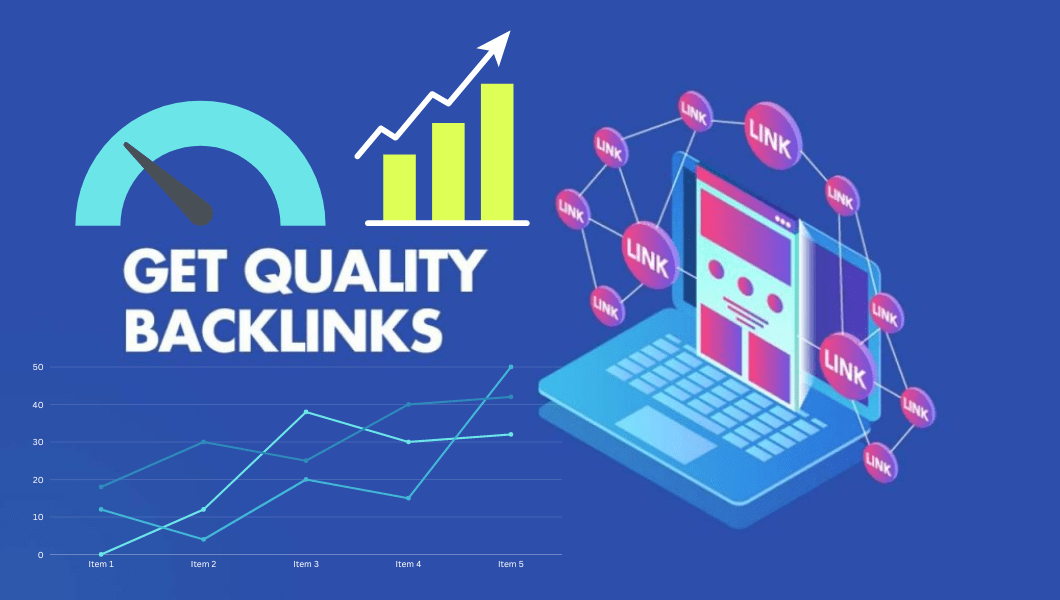Backlinks have long been considered a crucial factor in determining a website’s ranking on search engines. However, the value of backlinks has changed over the years, with search engines now placing less emphasis on the number of backlinks and more on the quality of those links. The importance and role of backlinks in SEO has evolved, and it is now more important to focus on building high-quality, relevant backlinks from authoritative and trustworthy websites, rather than just acquiring as many backlinks as possible. In this article, we will delve into the evolving role of backlinks in SEO and explain why it is crucial to focus on quality over quantity when it comes to backlinks.
“Role of Backlinks were historically seen as a crucial factor in determining a website’s ranking on search engines.”
Backlinks were once considered the backbone of how search engines ranked websites. The idea was simple: the more backlinks a website had pointing to it, the more popular it must be, and the higher it would rank in search results. This led many website owners to focus on acquiring as many backlinks as possible, regardless of their quality or relevance. This approach was largely successful, as search engines at the time placed a high emphasis on the number of backlinks a website had. But now with time we can see the Evolving Role of Backlinks in SEO.
“The value and role of backlinks has changed, with Google now placing less emphasis on the number of backlinks and more on the quality of those links.”

Over time, search engines have become more sophisticated in their approach to ranking websites. Google, in particular, now places less emphasis on the number of backlinks and more on the quality of those links. In other words, it’s not just about how many backlinks a website has, but about the quality and relevance of those links. This shift has been driven by the increasing use of backlink spamming and link farming, which have reduced the value of backlinks as a ranking factor.
“Backlinks have been subject to abuse through backlink spamming, link farming, and automated link building tools.”
As backlinks became more important for search engine rankings, website owners and SEOs began to use unethical tactics to acquire them. Role of Backlink spamming involves creating low-quality or irrelevant links pointing to a website, often through automated tools or link farms. These tactics were designed to manipulate search engine rankings and artificially boost a website’s popularity. As a result, search engines have had to take measures to combat backlink spamming and preserve the value of backlinks as a ranking factor.
“Search engines have taken measures to combat backlink spamming, including algorithms to identify and penalize such practices, and the use of AI and machine learning.”
In response to the widespread abuse of backlinks, search engines have developed algorithms and technologies to identify and penalize unethical link building practices. Google, for example, has algorithms that can identify link spam and penalize websites that engage in such practices. The use of AI and machine learning has also made it easier for search engines to identify and penalize unethical link building tactics. These measures have made it more difficult for website owners and SEOs to manipulate search engine rankings through backlink spamming.
“The majority of SEOs believe that the role of backlinks are not as effective as they used to be.”
The changes in search engine algorithms and the increased focus on the quality of backlinks have led many SEOs to believe that backlinks are not as effective as they used to be. While role of backlink in search engine rankings still play a great deal, they are no longer the be-all and end-all of SEO. Instead, SEOs are now encouraged to focus on creating high-quality, relevant content that will attract natural, high-quality backlinks.
“Search engines now evaluate backlinks based on relevance, anchor text, and overall authority of the linking domain.”
In their evaluation of backlinks, search engines now consider a number of factors beyond just the number of links. They also take into account the relevance of the linking domain, the anchor text used in the link, and the overall authority of the linking domain. These factors help search engines determine the quality and relevance of a backlink and its potential impact on a website’s search engine ranking.
While the importance of backlinks in SEO has decreased in recent years, it is still an important factor to consider. Backlinks are essentially a vote of confidence for your website and indicate that other websites consider your content to be valuable and relevant. This, in turn, signals to search engines that your website is a valuable and trustworthy resource, which can help to boost your search engine rankings.
However, it is important to focus on the quality of your backlinks rather than just the quantity. Search engines, such as Google, are now placing less emphasis on the number of backlinks and more on the quality of those links. This means that it is crucial to focus on building high-quality, relevant backlinks from authoritative and trustworthy websites.
In the past, backlinks were subject to abuse through practices such as backlink spamming, link farming, and automated link building tools. This resulted in search engines having to take measures to combat these practices, including algorithms to identify and penalize such practices, and the use of AI and machine learning. This is why it is important to avoid unethical link building practices and follow best practices when building backlinks.
The best practice for SEO is to focus on creating high-quality content and building relationships with other websites. This will help you to earn natural, high-quality backlinks over time, rather than trying to acquire as many backlinks as possible through unethical practices. Creating high-quality, relevant content that is valuable to your target audience will not only help you to attract more backlinks, but it will also keep visitors engaged and increase the overall user experience of your website.
In conclusion,
While the importance and role of backlinks in SEO has decreased in recent years, it is still an important factor to consider. Focusing on creating high-quality content and building relationships with other websites is the best practice for SEO and will help you to earn natural, high-quality backlinks over time. Avoiding unethical link building practices and focusing on building high-quality, relevant role of backlinks will help to boost your search engine rankings and improve the overall user experience of your website.



